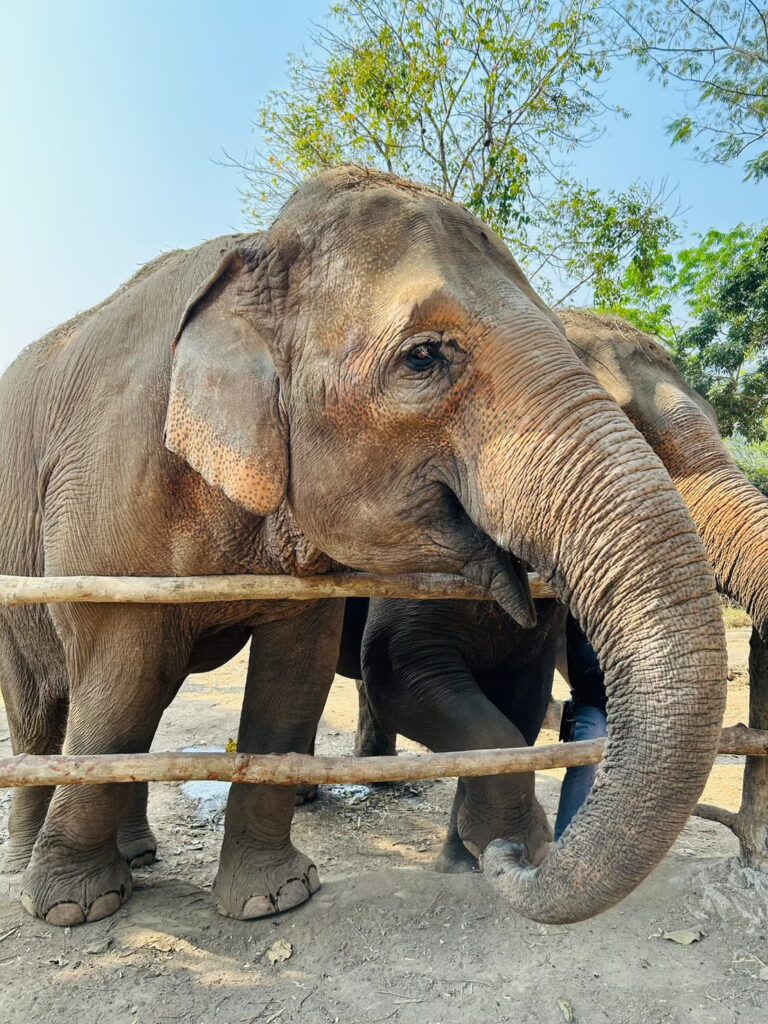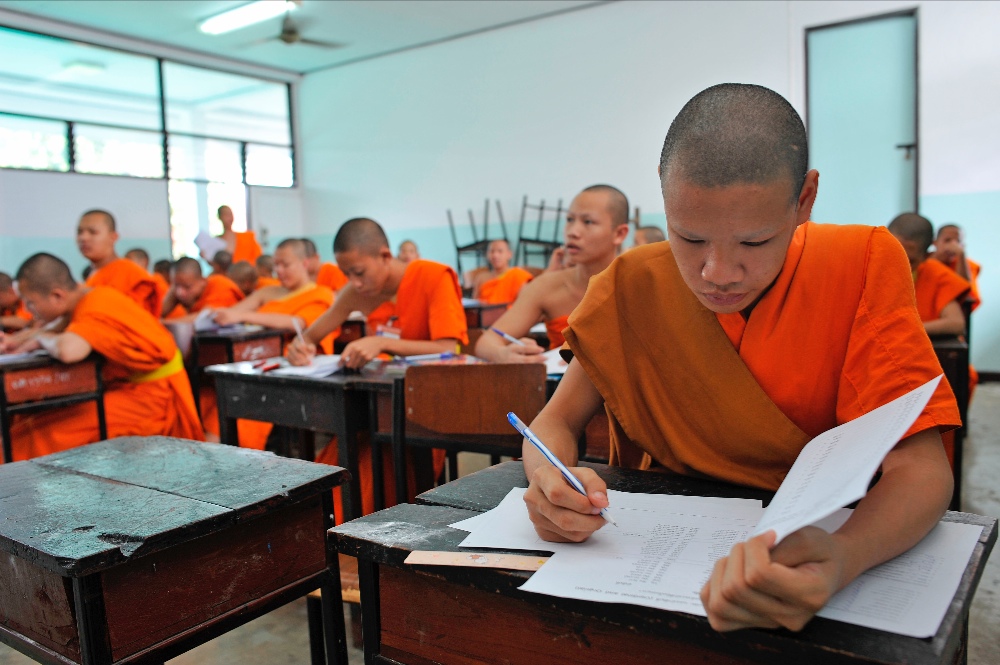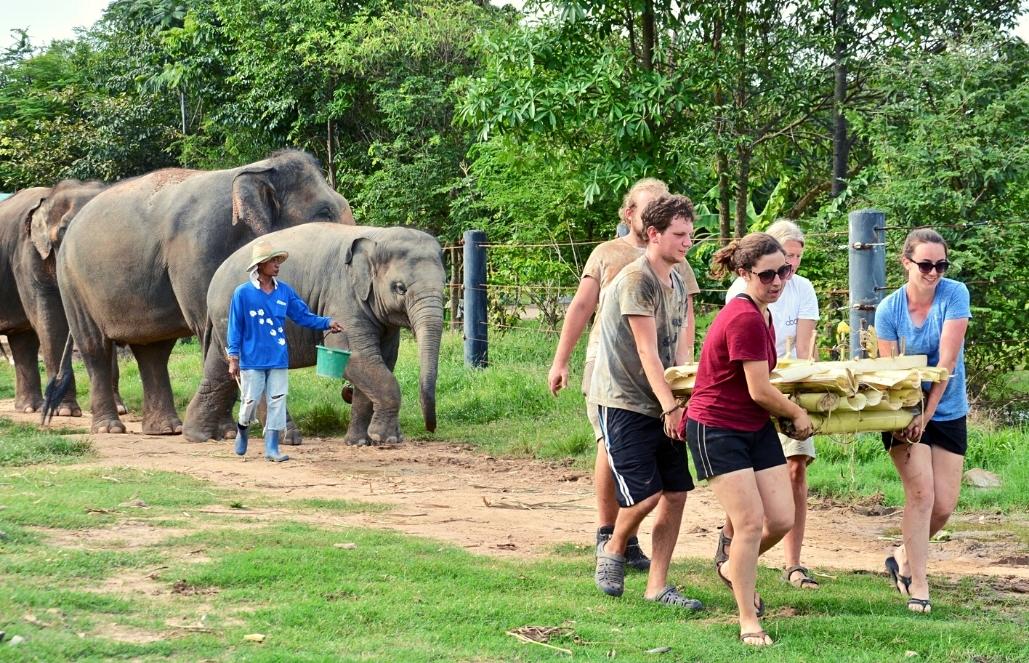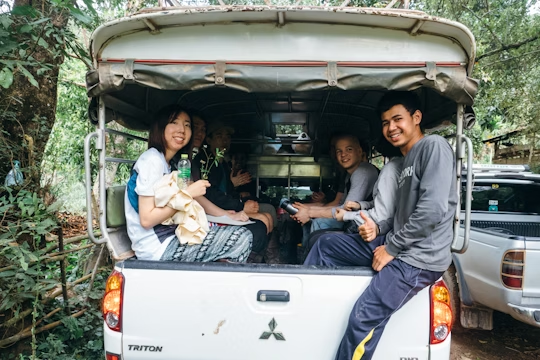Updated for 2025
Many folks don’t believe in magic. Then they go to Thailand — and everything changes. From the jungles of Chiang Mai to the bustling streets of Bangkok to the chilled-out beaches of Phuket, Thailand makes you believe that this is the place where the magic happens.
If you want to visit and spend time in Thailand, you’re not alone. The good news is that you can actually visit the Southeast Asian nation for cheap. Flights, hotels, food, and activities add up. Thankfully, cost-saving travel strategies exist.
Perhaps you never thought of it, but a wonderful way to visit Thailand on a shoestring budget is to teach English and get paid to live there. Teaching English as a Foreign Language is the perfect opportunity to get paid to travel abroad in Thailand.
International TEFL Academy (ITA) offers the gold standard in TEFL certification for teaching English abroad & teaching English online. You can choose to teach anywhere in Thailand, from the bustling city of Bangkok to the beaches of Phuket, or the jungles of Chiang Mai. It’s up to you. If you have a 4-year degree and TEFL training through ITA, obtaining a job in the location of your choice shouldn’t be a problem. English teaching jobs are in abundance in primary schools, language centers, universities, and other educational institutions. Salary is quite solid, typically between $1,000 – $2,000+ monthly, and usually more than enough to live comfortably in Thailand.
Another cheap way to travel is to participate in a volunteer program. For example, International Volunteer HQ, one of the world’s most trusted and affordable volunteer abroad organizations, offers 9 different volunteer projects in Thailand at their Chiang Rai and Hua Hin locations. Their volunteer projects start at just $20 per day and include room and board!
Another volunteer organization, GoEco, also offers a variety of service opportunities in Thailand, such as a teaching program in Hua Hin. Or, if you want to experience the beauty of Thailand’s jungles and save wildlife, GoEco has an elephant camp project south of Bangkok worth considering.
Volunteer programs enable you to explore Thai culture more deeply while keeping your adventures cost-effective. Their projects are very reasonably priced. Additionally, the programs typically include meals and accommodation, among other things. This eliminates major expenses that come with traveling.
Ready for more advice on how you can visit Thailand for cheap? From finding low-priced flights to intern abroad options, we discuss it all here. So, read these 10 tips! You’ll figure out an inexpensive way to experience the history, culture, nature, and entertainment in Thailand.
1. Search For Cheap Flights To Thailand
There are low-priced flights to Thailand out there. Here’s a strategy to snag one of those flights:
- Start looking months in advance. For most regions, flights to Thailand are cheapest when well in advance. CheapAir.com has a lot of data on this. For instance, if you’re flying from the United States, booking international flights 54 days in advance is historically the cheapest.
- Fly with low-cost airlines. For example, low-cost carriers like AirAsia and Jetstar have routes traveling from all over Asia and Australia to Thailand. Prices are usually below market averages.
- Search on student travel sites. If you’re a student, use specialty sites like StudentUniverse and STA Travel, both of which tailor deals and discounts for students.
Also, be flexible with your dates. It could literally be a hundred dollars cheaper to fly on a Tuesday rather than a Friday.
2. Go To Thailand During Non-Peak Season
As Frommer’s notes, the high season for tourism to Thailand is from November through March, when Thailand’s weather is spectacular. Prices during these times skyrocket.
While it’s very tempting to escape to the gorgeous nature and happening cities of Thailand during this time, you can cut costs greatly by going during the off-season. It’s not unheard of for airfare to be half the price.
If you come during the hot season (roughly March to May) or rainy season (May to November), you may have to deal with some weather inconveniences. But the amount of money you’ll save on airfare, lodging, and tours might be worth it.
3. Save On Lodging In Thailand
Outside of transportation to Thailand, your next biggest expense may be lodging. You can actually save a lot of money here. Just look at this price data from Lonely Planet:
- A Basic guesthouse room: 500–1000B (US$15.50–31)
- A mid-range hotel ranges from 1000-3000 Baht ($30-$90)
- A high-end hotel exceeds 3000 Baht ($90+)
So, go with budget lodging. On a two-week vacation, you could cut $500 or more off your expenses.
4. Use Miles And Points To Get To Thailand
If you’re reading this article, you’re either a traveler or an aspiring traveler. These days, every adventurer has his or her hand in the hotel points and airline miles game.
With sites like Nerd Wallet, The Points Guy, and Million Miles Secrets, you can learn the art of travel hacking. Most of these outlets highlight the ability to capitalize on credit card sign-up bonuses, but they also tell you how to get extra points by doing surveys, dining out, shopping online, and more.
With a clever strategy, you may be able to get enough miles to pay for a hotel or enough points to get a few free nights at a hotel. That equals serious savings.
5. Intern In Thailand
Thailand is a great place to get some professional experience. So why not get an internship? With an internship in Thailand, you’ll also gain valuable experience in working in another country – something that’s vital to career success in today’s interconnected world. On top of that, you’ll still have time to enjoy the sites and culture. And it will be cheaper than a typical vacation.
Trending Guidebooks
Volunteering Abroad AFTER the Coronavirus Outbreak
Read 25,952 times2025 Best Internships Abroad: Medical Care, Marine Biology & More
Read 89,704 timesVolunteer in Australia: Animals, Conservation, Ranching and More
Read 49,407 times2025 Best Volunteer Abroad Programs, Organizations, and Projects
Read 3,648,979 times
Marine Conservation Internships in Thailand with Intern Abroad HQ offer a transformative opportunity for aspiring marine scientists and scuba enthusiasts. Interns enhance underwater research skills and scuba diving proficiency while engaging in coral reef monitoring, restoration, and biodiversity surveys under the guidance of experienced marine biologists. Participants gain in-depth understanding of reef ecosystems and their threats through hands-on projects in Koh Tao.
With accommodation, 24/7 support, and an experiential learning curriculum, this internship successfully prepares students and graduates for impactful careers in marine conservation.
GIV’s Internships in Thailand offer immersive opportunities across diverse fields:
- Healthcare Internship (Ao Nang): Over 4 to 12 weeks and 40 hours per week, join a healthcare internship in Krabi Province. Address global health issues by leading workshops on hygiene, nutrition, and water conservation, working on regenerative community gardens, and integrating mindfulness activities while immersing in Thai culture.
- Gibbon Conservation Internship: Spend 4 to 12 weeks with 40 hours of fieldwork per week tracking endangered white-handed gibbons in the mountains of Chiang Mai. Record data on habitat use, group size, and behavior while also engaging in optional research projects, including elephant conservation, and experiencing local Karen village life.
- Coastal Conservation Internship: For 2 to 12 weeks at 40 hours per week in Krabi Province, contribute to scientific research and species identification in the Andaman coastal ecosystem. Participate in biodiversity surveys, forest and coral reef restoration, seagrass surveys, coastal mapping, and dugong and sea turtle monitoring in a setting of stunning beaches and limestone cliffs.
6. Teach English In Thailand
Thailand needs English teachers to help prepare their children and adults for a connected global economy. Make your vacation more meaningful by teaching English during your stay. By teaching English, not only will you get to connect with locals and their culture, but you can also earn money if you earn TEFL certification and get placed with a company such as International TEFL Academy, which will help you find a teaching job in Thailand.
Alternatively, you can teach English as part of a volunteer program, which isn’t a paid opportunity, but you can get accommodation as part of a modest program fees. One good organization to check is International Volunteer HQ. They offer teaching English volunteer projects in Hua Hin for an affordable $21 per day!
Volunteer with GoEco in Hua Hin to teach English and support local schools and childcare centers. Engage students aged 6 to 18 through creative lesson planning and cultural exchange. Experience Thai culture by participating in structured teaching sessions, lesson preparation, and evening trips to local night markets. Commit for at least one week in this popular beach destination, where you help broaden young minds and inspire local teachers with fresh, innovative ideas. And you can volunteer with your family too!
If you are looking for an exotic destination to teach English, then check out Involvement Volunteer International’s Hill Tribe English Teaching project, which is located in a national park near the Myanmar border!
Teach English to young Buddhist monks in Chiang Mai with Volunteering Solutions! Truly a unique cultural and educational experience. Teach elementary subjects at monasteries and temple schools while engaging in interactive exchanges that deepen your understanding of spiritual life. Volunteers work with novices aged 12 to 18, enhancing both religious and secular knowledge while exploring Chiang Mai’s vibrant markets and rich cultural heritage daily.
Volunteer teaching with GVI in Ao Nang, Thailand offers a unique opportunity to explore a career in education while developing transferable skills in communication and teamwork. Teach English to both children and adults, lead interactive workshops, and support summer camps. Experience the vibrant local culture and stunning natural beauty of Krabi Province, all while contributing to quality education and lasting community impact.
Note: With most volunteer English teaching (such as this one by GoEco in Hua Hin), and internship programs in Thailand, the longer you stay in the program, the cheaper it is per week. Be sure to check the program that interests you–because you may be able to stay longer, without having to dig too far into your wallet.
7. Volunteer With Elephants Ethically In Thailand
From Erawan National Park to the Similan Islands, Thailand boasts some of the most incredible natural scenes in the world. But perhaps nothing is more majestic and cherished than the elephant; a treasure of Thailand.
When you volunteer with elephants in Thailand, you do your part to protect this amazing creature. You also get to spend time in some of the most breathtaking places on earth, while saving money on food and lodging (they’re provided by most programs).
When choosing a program, it’s essential to research and select organizations that adhere to ethical guidelines, ensuring your efforts contribute to the animals’ welfare rather than exploiting them.
Key Guidelines for Ethical Elephant Volunteering:
- Prioritize Animal Welfare: Choose programs that provide spacious, natural habitats and allow elephants to engage in natural behaviors. Avoid organizations that promote activities such as elephant riding or performance-based interactions that can stress the animals.
- Transparent Operations: Ensure the organization maintains financial and operational transparency. Funds should be directly invested in elephant care, habitat conservation, and community support.
- Professional Care: Look for programs that employ qualified staff and offer proper veterinary care. This ensures that the elephants receive regular health check-ups and rehabilitation support if needed.
- Sustainable Conservation: Support initiatives that integrate conservation efforts with local community development. Ethical projects contribute to the long-term protection of both the elephants and their natural environments.
- Informed Volunteer Engagement: Seek feedback and reviews from past volunteers. This can help verify that the program follows ethical standards and truly benefits the elephants.
By following these guidelines, you ensure that your volunteer work not only enriches your experience in some of the most stunning natural settings on earth but also makes a positive, lasting impact on elephant conservation.
For instance, ethical volunteering programs in Thailand include:
- GoEco: Volunteer at an elephant sanctuary in Chiang Rai. This initiative emphasizes ethical care and rehabilitation.
- Volunteering Solutions: Engage in a rehabilitation project in Chiang Mai, designed to support the elephants’ long-term welfare.
- GVI: Volunteer in Chiang Mai to assist with elephant surveys and health checks, working with mahouts and locals to reintegrate former tourism elephants while experiencing Karen culture.
Always verify the ethical practices of any program and choose those that put the welfare of the elephants first. This approach ensures that your contributions truly support the conservation and well-being of these majestic creatures while providing you with a rewarding and meaningful experience.
8. Volunteer To Help People In Thailand
From disadvantaged children in Bangkok to chronically ill folks in the countryside, you have many options to help the great people of Thailand (and save money on your trip in the meantime).
What’s great about volunteering in Thailand is that it gives you the chance to go off the beaten path.
If that sounds like the trip you want, look at IVHQ’s Hill Tribe Support project in Hua Hin. You’ll get the amazing chance to learn about the traditional lives of hill peoples in Thailand as you contribute to various community initiatives, like after-school English language learning. Additionally, after volunteering to support the Karen Hill tribe, you’re in a convenient location for seeing the country. Sites like Kaeng Krachan National Park, Thailand’s largest park, are nearby.
With GoEco, join the student volunteer program in Hua Hin to help families in poor housing conditions. Assist with renovating inadequate homes and improving community buildings like temples, hospitals, and schools. Engage in light construction tasks, including cleaning, mixing cement, and painting, while experiencing Thai culture through local markets and beautiful beaches.
Join Project’s Abroad to do marine conservation volunteering in Thailand to protect vulnerable coral reefs and support local environmental and community efforts. Gain advanced dive certifications, conduct underwater surveys, remove debris, and propagate coral. Your work improves ocean health, informs research and policy, and preserves vital marine ecosystems, ultimately benefiting local communities by promoting sustainable livelihoods and enhancing Thailand’s natural heritage, ensuring bright futures.
9. Find A Package Deal For Thailand
Bundling has become super popular for things like insurance, home internet and cable, and other things we buy. Doing the same thing with travel can save you cash as well. There are many ways you can find package deals to Thailand. Just look in advance, and you’ll find a good price.
Looking to go beyond the usual spots? GoEco, a leading volunteer tourism company, has a terrific travel package. Their Learn, Volunteer, and Travel experience in Thailand involves everything from studying Buddhism and visiting villages in Sing Buri province to working on construction projects.
On a Gap Year? if you’re between 17 to 24 years old, check out Project Abroad’s Southeast Asia
Gap Adventure which also includes Vietnam and Cambodia! Begin in Bangkok’s bustling markets and majestic temples, then journey north to Chiang Mai’s cultural heritage and ethical elephant sanctuaries. This comprehensive package blends adventure, culture, and relaxation for an unforgettable Southeast Asian journey.
10. Take A Class In Thailand
From studying the Thai language to practicing local cooking, there are many incredible things to learn in Thailand. On top of that, it’s an affordable way to dive into the culture.
IVI’s Cultural Week in Chiang Mai immerses you in Thai heritage. Enjoy cooking classes and language lessons alongside walking tours, temple visits, and hot springs while exploring local markets and handicraft villages in breathtaking mountains.
Thailand Awaits!
Thailand remains a land of wonder where every traveler can experience its magic without breaking the bank. Whether you choose to immerse yourself in the vibrant culture by teaching English, gain invaluable work experience through internships, or participate in ethically driven volunteer programs, there’s an affordable adventure waiting for you.
With smart strategies like booking flights in advance, choosing budget-friendly accommodations, and even bundling your travel arrangements, exploring Thailand’s diverse regions—from bustling cities to serene jungles and breathtaking beaches—has never been more accessible. Embrace the journey and discover how this enchanting country can transform your travel dreams into reality.









































Nick Callos · Writer
With a BA in English Literature & Writing from Boston College, Nick researches and writes about volunteer, intern, and teach abroad programs worldwide. He has studied abroad and taught English in Chengdu, China, and aims to help fellow travelers make a lasting impact on the communities they visit.